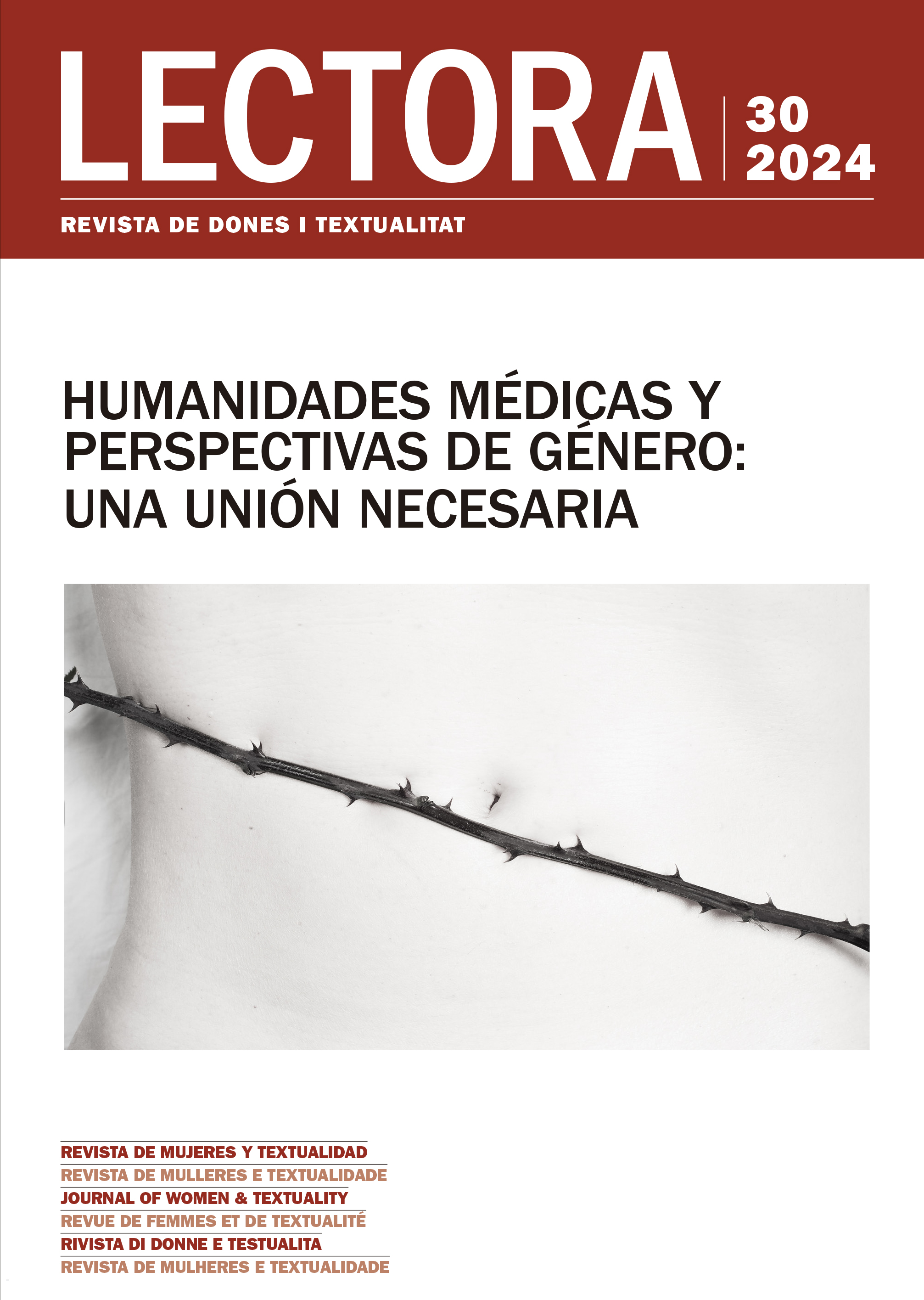Teatro patográfico y salud de la mujer: del “sick tourism” al “withnessing” en The Year My Vagina Tried to Kill Me y Performing Endometriosis
DOI:
https://doi.org/10.1344/Lectora2024.30.4Keywords:
theatre, medical humanities, gender, feminisms, endometriosisAbstract
This article explores the concepts of “sick tourism” and “withnessing” in two pathographical plays —Amy Vreeke’s The Year My Vagina Tried to Kill Me (2016) and Verónica Rodríguez’s Performing Endometriosis (2022)— written and performed respectively by Vreeke and Rodríguez, both women with endometriosis. Endometriosis is a condition in which tissue similar to the endometrium (the inner lining of the womb) appears elsewhere in the body. This tissue behaves like menstruation (grows, bleeds and sheds), but unlike menstruation, it remains trapped inside. Methodologically, this article uses theatre and performance studies, gender studies with a feminist intersectional perspective and the critical medical humanities, with the aim of foregrounding the corporeal and ecological epistemologies suggested by these “pathographical performances” (Brodzinski 2016), that is, performances that focus on the lived experience of illness. First, it examines “the visual” as a common trait across theatre and illness and how the case studies selected appropriate the visual in a context in which the illness of the performers lacks visibility and in which they are not seen. Second, connecting those phenomena to the idea of the spectator, it suggests a shift from “sick tourism”, which refers to the idea of “visiting” illness, and in theatre’s case, perhaps, be witness to the performer’s pathological process, to “withnessing”, which conveys a corporeal organisation becoming in which vision is not the main relational axis. It concludes that these “withnessing” theatrical examples highlight the existence of a space in which illness knowledge is contributed to from bodies and with bodies.
Downloads
Published
How to Cite
Issue
Section
License
Copyright (c) 2024 Verónica Rodríguez

This work is licensed under a Creative Commons Attribution-NonCommercial-NoDerivatives 4.0 International License.
The Author retains ownership of the copyright in this article and grants Lectora: revista de dones i textualitat the rights to print publication of the Article. The work will be available under a Creative Commons Attribution-Noncommercial-No Derivative Works license, by which the article must be credited to the Author and the Journal be credited as first place of publication.
The Author is free to enter in seperate, additional contractual agreements for the non-exclusive distribution of the work as published in this journal (such as institutional repositories or a book), as long as the original publication in Lectora is credited.
The Author is encouraged to post the work online (eg in institutional or thematic repositories, or in their website), as it can lead to productive exchanges as well as to a greater citation of the published work (see The Effect of Open Access).




